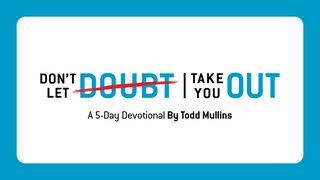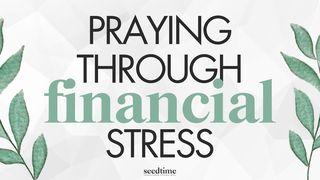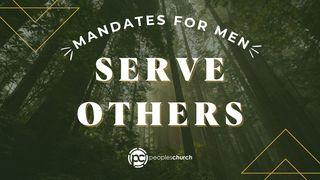Resolve Conflict God's WaySample

Day 1: Are you a peacemaker or a peacekeeper?
Conflict is inevitable, so how do we engage with it appropriately? How can we know that we have done our best to honor God in our relationships when we have hurt others or others have hurt us?
To grow and become more like Jesus, we must learn how to deal with conflict biblically. Even Jesus had conflict with the people around Him, yet, He was without sin. This can encourage us that conflict isn’t always a sin, but we must still learn how to work through it in a God-honoring way.
Jesus said in His famous Sermon on the Mount, “Blessed are the peacemakers, for they shall be called sons (and daughters) of God” (Matthew 5:9). Just as God sought peace and reconciliation with us by sending His Son, we are to seek peace with others. Being a peacemaker takes risk and sacrifice, but it can also bring great joy to see relationships around us reconciled. How can we do that if we hold on to our hurts and don’t choose to love and forgive others?
The author of Hebrews encourages us to strive for peace with everyone—EVERYONE! There are no exceptions here! The reason is because we want everyone to obtain the grace of God (their salvation). Another reason is so that we will not become bitter. Bitterness is an internal emotional cancer that can grow, fester, and cause deeper trouble in our lives and the lives around us.
What do you think the difference is between a peacemaker and a peacekeeper? A peacekeeper avoids conflict by sweeping the needed conversations under the rug. A peacekeeper will allow the “elephant” to stay in the room and pretend everything is fine. No need to ruffle feathers. No need to elevate the situation. Just ignore it, and we will keep the peace. But a peacemaker does the opposite. A peacemaker cares about the person and the situation enough to put the time and energy into pursuing peace with others. There is intentionality. There is a posture of learning and being for the other person. There is a desire for reconciliation and not revenge. Which is your tendency when you feel tension in the room or hurt by another person?
Being a peacemaker is not something we can do on our own. We need God’s strength, wisdom, and guidance as we converse with others. We can have confidence in knowing that we are more like Jesus when we pursue peace with others. The first step in resolving conflict God’s way is to determine that you want to become a peacemaker and not remain a peacekeeper.
Reflect on these questions:
- How does being a peacemaker represent we are related to God?
- Why do you want to become a peacemaker and not remain a peacekeeper?
- Who is hard for you to strive for peace with? Why do you think that is?
Pray and ask the Holy Spirit to empower you to become a peacemaker. Ask Him to show you where you have avoided conflict and invite Him into this journey of learning how to do it biblically. Also, begin to pray for the person with whom you find it challenging to have peace.
Scripture
About this Plan

Become a biblical peacemaker. Discover biblical and unbiblical responses to conflict. Learn three categories of conflict and how to respond appropriately to each type according to the Bible. Grasp the true meaning of forgiveness and how to live it out.
More
Related plans

Don't Let Doubt Take You Out

Always Near: 14 Days of Discovering God’s Presence Every Day

The Year of God's Divine Agenda

Praying Through Financial Stress

A Family of Prayer

Every Place

In Her Image: Character Study of the Proverbs 31 Woman

Mandates for Men: Serve Others

Sound of Heaven: A 6-Day Devotional by Danny Gokey
